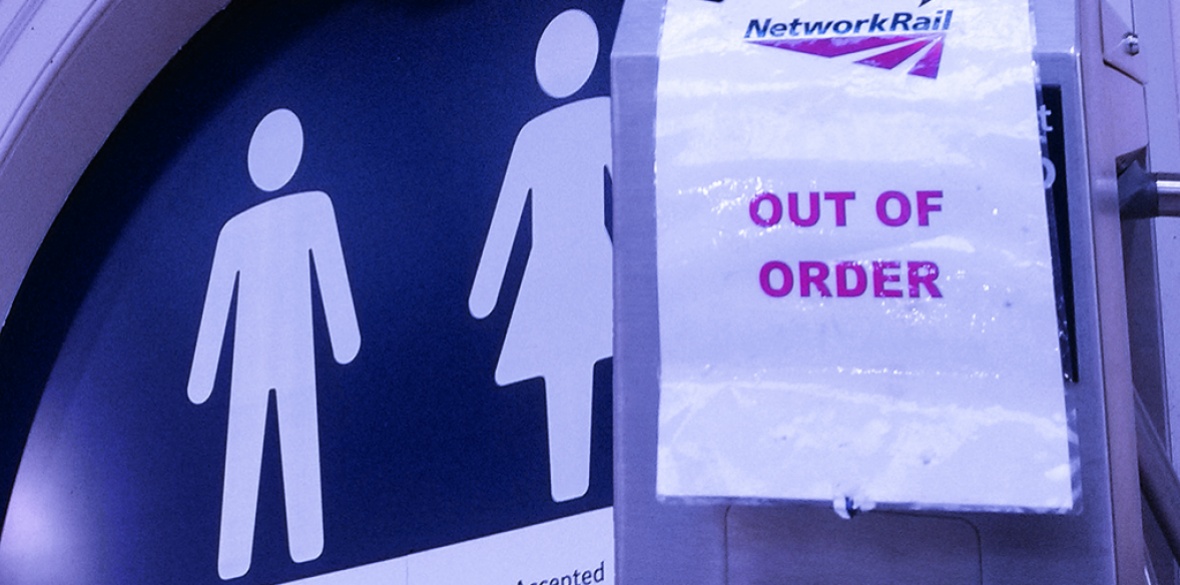This is the last article you can read this month
You can read more article this month
You can read more articles this month
Sorry your limit is up for this month
Reset on:
Please help support the Morning Star by subscribing here
THE lack of access to safe, clean and appropriate toilet facilities and the lack of opportunities for staff to access them during their working day, is a real problem on the railway.
It’s an occupational health and safety issue. But it’s also a public health issue and an issue of basic human rights.
Workers who cannot access proper toilet facilities, or are not given the time by employers to do so, are forced to urinate in public areas, defecate in the open, use inappropriate containers, or even, on occasion, soil their clothes or seat.
As well as being hugely stressful and humiliating, the related public health impact affects not only the workers themselves, but also their colleagues, cleaning staff and the public, who are all potentially exposed to human waste.
Untreated human waste in the environment can spread deadly and chronic diseases such as cholera, hepatitis, polio, diarrhoea and typhoid.
That’s why access to toilets and washing facilities is essential for good public health and to prevent the spread of disease.
The Covid-19 coronavirus pandemic has thrown into stark relief the importance of hygiene and access to adequate toilet and hand-washing facilities in the prevention of the spread of transmissible diseases.
Clean, hygienic loos offering privacy, as well as warm running water, a sink, soap and safe sanitary disposal are essential for women to manage menstruation safely and with dignity each month.
Menstruation brings an increased need to access toilet facilities — it can increase the need to urinate more frequently, with diarrhoea a common premenstrual symptom and sanitary products need to be changed regularly (and safely).
It cannot be right that freight drivers are often left with no dignified or hygienic options for carrying out basic bodily functions.
And this problem undermines efforts by the rail industry to recruit a more representative number of women drivers.
Some train drivers choose not to drink water or tea or coffee — “deliberate dehydration” — to avoid having to go to the toilet, with all the attendant risks to rail safety.
Not maintaining fluid levels has an immediate effect on your concentration and harmful long-term effects on your health, too. Driver’s cabs can reach temperatures of 30°C in the summer heat.
Some train drivers are changing sanitary towels in bushes by the side of the track — that’s outrageous in a First World country in 2021. Others urinate or defecate into carrier bags and bottles.
Who wants to urinate in a bush? One woman driver used her hard hat. It’s time our industry realised its obligations and did the right thing — for our drivers and for the passengers they and goods they move around this country.
We need to address this issue and address it now. Long-term, the answer is to design out the problem.
When the train and freight operating companies are commissioning a new train they should build and design it to spec with a staff toilet on board.
In the meantime companies need to think it through and when retro-fitting old stock, come up with a solution to the problem.
Some firms are fitting camping toilets on old trains and — while not great — freight drivers say a camping toilet is better than a bush.
Mick Whelan is general secretary of Aslef, the train drivers’ union.











